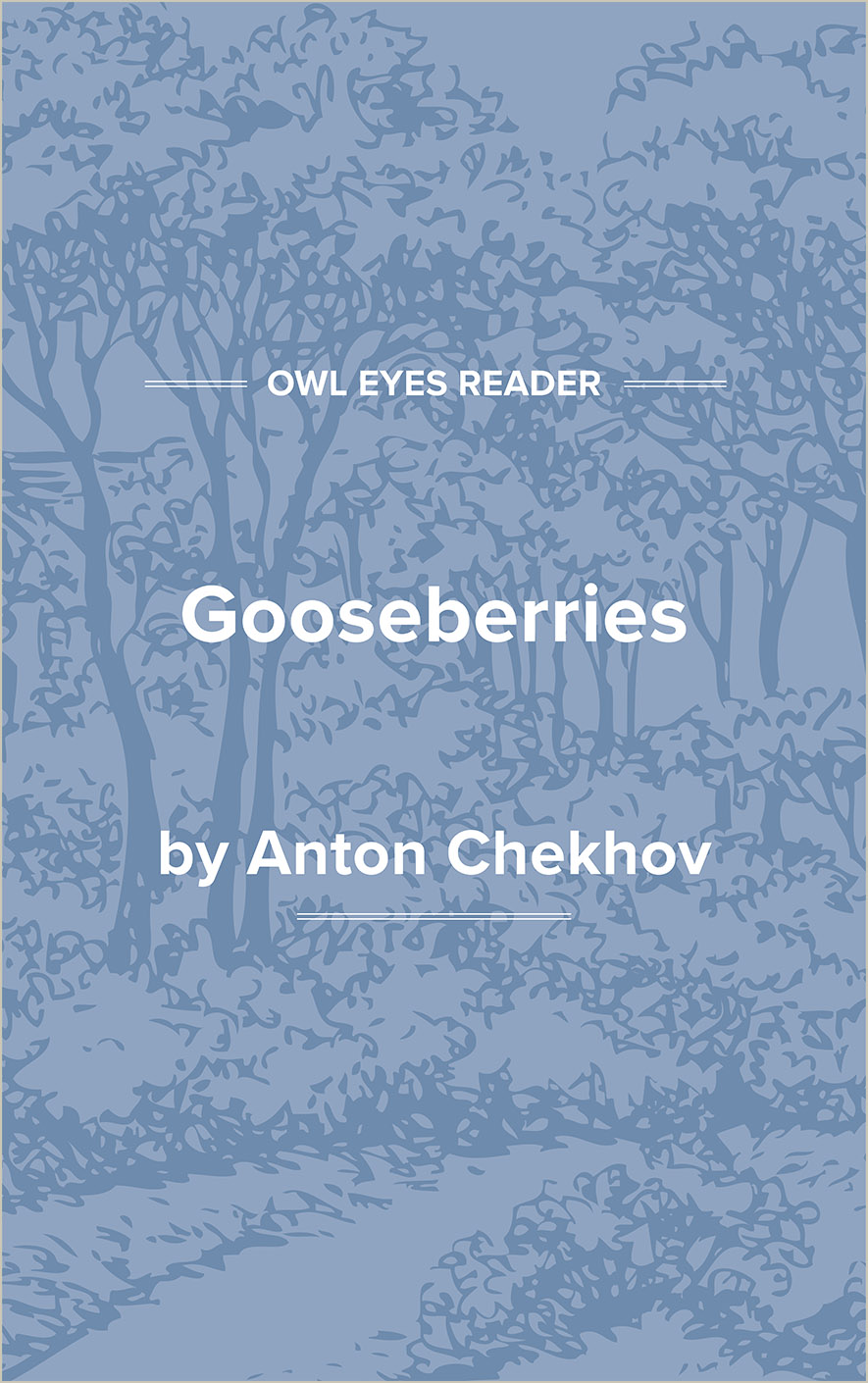Study Guide
Summary
“Gooseberries” is one of three linked Chekhov stories treating forms of desire, in which friends on holiday in the country relate remembrances as travels take them to different locations. In “Gooseberries,” the two companions, Burkin, a schoolmaster, and Ivan Ivanovitch, a veterinary surgeon, seek shelter at a welcoming friend’s farm. After the men wash up, they enter the comfortable house of their host, Alehin. There, the veterinarian agrees to tell a story about his younger brother, Nikolay, once an unhappy office-bound civil servant, who for years desires and dreams of buying a country estate near water with a garden, orchard, and, most particularly, gooseberries. Nikolay continues to dream and lives frugally, penny-pinching on food and clothes to save money. Then he marries an elderly rich widow, keeping her short of food while he banks her money in his name. The deprived lady conveniently dies, leaving him with sufficient savings to purchase the country estate.
Continuing his narrative, Ivan visits his now porcine brother on his estate and finds Nikolay a gluttonous, idle, self-satisfied landowner, convinced of salvation by such deeds of charity as treating all peasants’ ailments with castor oil and corrupting them with gallons of vodka on special holidays. Such condescension, Nikolay believes, permit the peasants to love him as their gentleman landowner. A sumptuous meal ends with home-grown gooseberries, which Nikolay excitedly eats with relish, claiming them delicious without perceiving that they are sour and unripe. Ivan feels guilt that he, too, has been content with his life without realizing that behind such idle satisfaction exists...
(The entire page is 398 words.)
Owl Eyes subscribers get unlimited access to our expert annotations, analyses, and study guides on your favorite texts. Master the classics for less than $5/month!

